Eswatini (formerly Swaziland) is leading the way in sustainable architecture and eco-friendly construction with its top green buildings. The country is prioritizing sustainable energy to reduce energy insecurity and mitigate climate change. With targets for access to modern clean energy solutions, Eswatini is making significant strides towards a greener future.
- Eswatini (formerly Swaziland) is committed to sustainable architecture and eco-friendly construction.
- The country aims to increase renewable energy generation through hydropower, biomass, and solar.
- 20% of public buildings in Eswatini will be equipped with solar water heaters by 2018.
- The government has set targets for universal access to clean energy by 2025.
- Eswatini is focused on improving energy efficiency and implementing green building practices.
Energy-efficient Buildings in Eswatini
Eswatini has embraced energy-efficient building designs, revolutionizing the construction industry with environmentally friendly practices. These buildings prioritize energy conservation and sustainability, setting an example for the rest of the country and the continent. From innovative designs to cutting-edge technologies, Eswatini is leading the way in creating a greener future.
One of the key features of energy-efficient buildings in Eswatini is their use of renewable energy sources. Solar power plays a significant role, with buildings incorporating solar panels to generate clean and sustainable electricity. This not only reduces the dependency on fossil fuels but also significantly cuts down on carbon emissions.
Furthermore, energy-efficient buildings in Eswatini are built with a focus on insulation and natural ventilation. This helps to minimize the need for excessive heating or cooling, reducing energy consumption and costs. The use of eco-conscious construction materials, such as sustainable wood, recycled steel, and low VOC paints, further contributes to the overall energy efficiency of these buildings.
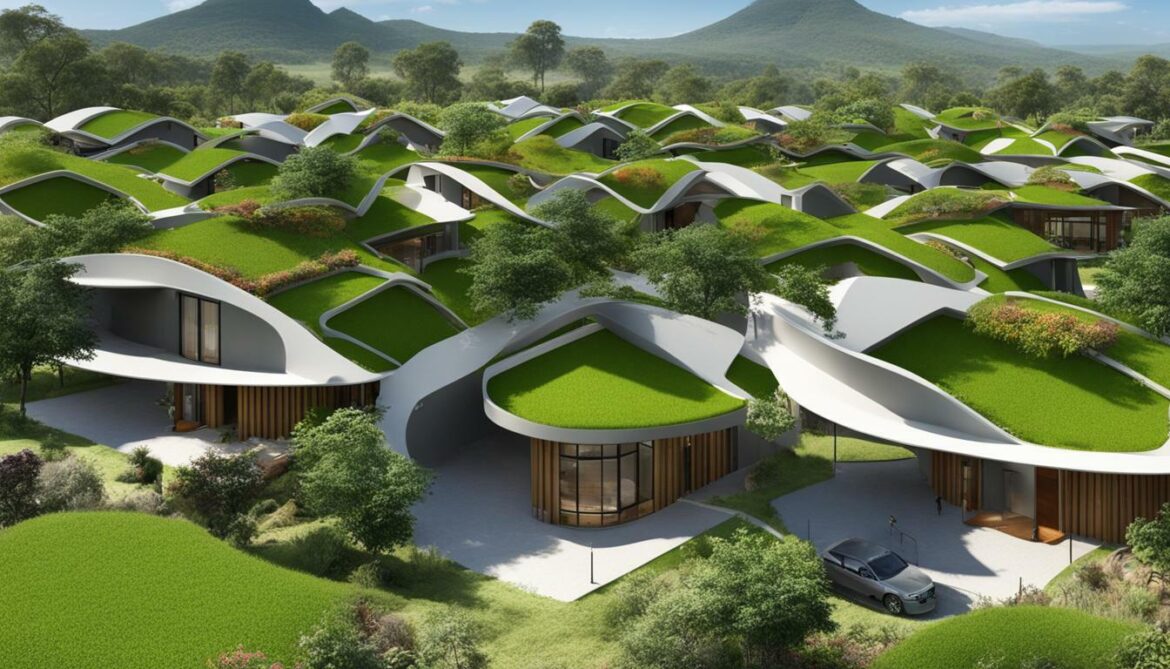
Another notable aspect of energy-efficient buildings in Eswatini is the incorporation of smart technologies. These buildings are equipped with advanced systems that optimize energy usage by automatically adjusting lighting, temperature, and ventilation based on occupancy and natural lighting conditions. This not only enhances energy efficiency but also provides occupants with a comfortable and sustainable living or working environment.
Benefits of Energy-efficient Buildings
- Significantly reduced energy consumption and utility costs
- Lower carbon footprint and greenhouse gas emissions
- Improved indoor air quality and occupant comfort
- Enhanced resilience to power outages and energy insecurity
- Contribution to national and global efforts in mitigating climate change
Eswatini’s commitment to energy-efficient buildings is not only transforming the construction industry but also shaping a more sustainable future for the country. By incorporating renewable energy sources, innovative design techniques, and smart technologies, these buildings set a precedent for sustainable development and inspire other nations to follow suit. As Eswatini continues to prioritize eco-friendly construction, it paves the way for a greener, more energy-secure world.
| Benefits of Energy-efficient Buildings |
| • Significantly reduced energy consumption and utility costs |
| • Lower carbon footprint and greenhouse gas emissions |
| • Improved indoor air quality and occupant comfort |
| • Enhanced resilience to power outages and energy insecurity |
| • Contribution to national and global efforts in mitigating climate change |
Sustainable Building Materials in Eswatini
Eswatini’s commitment to sustainable building practices is evident in the widespread use of eco-conscious construction materials and the pursuit of green building certifications. The country recognizes the importance of minimizing its environmental impact while promoting a healthy and energy-efficient built environment. With a focus on sustainability, Eswatini is adopting innovative construction methods and materials that prioritize ecological responsibility.
One example of sustainable building materials in Eswatini is bamboo. This versatile and renewable resource is gaining popularity in construction due to its strength, durability, and fast growth rate. Bamboo is harvested without causing extensive damage to the environment and can be used for various applications, including flooring, walls, and roofing.
Eswatini is also utilizing recycled and upcycled materials in construction projects. By repurposing materials such as reclaimed wood, recycled glass, and salvaged metal, the country reduces waste and promotes a circular economy. These materials not only minimize environmental impact but also offer unique aesthetics and add character to buildings.
| Advantages of Sustainable Building Materials |
| 1. Reduced carbon footprint |
| 2. Energy efficiency |
| 3. Improved indoor air quality |
| 4. Long-term cost savings |
Furthermore, Eswatini encourages the use of green building certifications to ensure the sustainability credentials of construction projects. Certifications such as LEED (Leadership in Energy and Environmental Design) and EDGE (Excellence in Design for Greater Efficiencies) help evaluate a building’s environmental impact and performance. These certifications provide a framework for sustainable design, construction, and operation, promoting energy efficiency, water conservation, and the use of eco-friendly materials.
By embracing sustainable building materials and green building certifications, Eswatini is leading the way in eco-conscious construction. The country’s commitment to environmental stewardship not only creates healthier and more efficient buildings but also sets a precedent for sustainable development in the region and beyond.
Renewable Energy in Eswatini
Eswatini’s transition to renewable energy sources has not only led to sustainable development but also reduced energy insecurity and mitigated climate change. The country has set ambitious targets for access to modern clean energy solutions, aiming for 75% access by 2018 and universal access by 2025. To achieve these goals, the government is prioritizing the increase of renewable energy generation, including hydropower, biomass, and solar.
One notable initiative in Eswatini is the plan to equip 20% of public buildings with solar water heaters by 2018. This move not only reduces the country’s dependence on fossil fuels but also demonstrates the government’s commitment to utilizing clean and sustainable energy sources. By harnessing the power of the sun, Eswatini is taking significant steps towards achieving energy self-sufficiency and reducing greenhouse gas emissions.
In addition to solar energy, Eswatini is exploring other renewable energy sources such as hydropower and biomass. The potential for hydropower in the country is significant, with several rivers and dams providing ample resources for electricity generation. Biomass, derived from organic waste materials, offers another renewable energy option. By utilizing agricultural, forestry, and municipal waste, Eswatini can produce bioenergy and reduce reliance on non-renewable fuels.
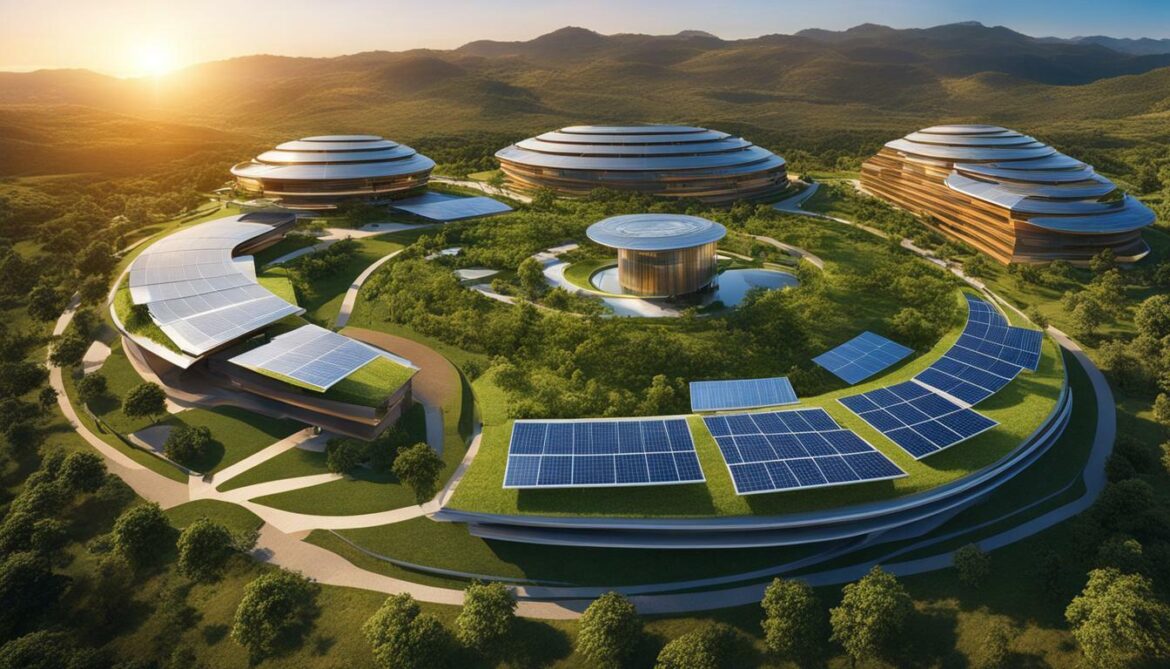
Eswatini’s commitment to renewable energy is also evident in its efforts to improve energy efficiency and implement green building practices. By incorporating energy-efficient designs and materials in construction projects, the country is reducing energy consumption and minimizing its environmental footprint. These green building practices not only promote sustainable development but also inspire others to adopt similar initiatives.
Renewable Energy Generation in Eswatini
| Renewable Energy Source |
Current Capacity |
Potential Capacity |
| Hydropower |
150 MW |
500 MW |
| Biomass |
30 MW |
200 MW |
| Solar |
15 MW |
500 MW |
With its commitment to renewable energy sources and sustainable development, Eswatini is setting an example for other nations to follow. By harnessing the power of nature, the country is not only reducing its carbon footprint but also ensuring a cleaner and greener future for its citizens.
Conclusion
Eswatini’s top green buildings represent a significant step towards a more sustainable and environmentally conscious future in the country. With a focus on eco-friendly construction and sustainable architecture, Eswatini is leading the way in promoting green building practices and prioritizing energy efficiency.
These buildings showcase innovative designs that not only reduce the carbon footprint but also enhance the overall quality of life for its occupants. By utilizing energy-efficient materials and construction methods, Eswatini is not only reducing energy consumption but also mitigating climate change and promoting a greener future.
The use of sustainable building materials further supports Eswatini’s commitment to eco-conscious construction. With green building certifications, the country ensures that its buildings meet stringent environmental standards, promoting responsible resource management and minimizing environmental impact.
Moreover, Eswatini’s dedication to renewable energy sources, such as hydropower, biomass, and solar power, demonstrates its determination to achieve sustainable development. By increasing renewable energy generation and incorporating it into its infrastructure, Eswatini is reducing energy insecurity and fostering a more sustainable and self-sufficient power supply.
In conclusion, Eswatini’s top green buildings are a testament to the country’s dedication to sustainable practices. By prioritizing eco-friendly construction, energy efficiency, sustainable materials, and renewable energy, Eswatini is forging a path towards a greener and more environmentally conscious future.
FAQ
What are Eswatini’s targets for access to clean energy?
Eswatini aims to achieve 75% access to modern clean energy solutions by 2018 and universal access by 2025.
What renewable energy sources is Eswatini focusing on?
Eswatini is prioritizing the development of renewable energy sources such as hydropower, biomass, and solar energy.
What are the plans for solar energy adoption in Eswatini?
Eswatini plans to equip 20% of public buildings with solar water heaters by 2018.
What are the goals for power generation in Eswatini?
Eswatini aims to be self-sufficient in power generation and achieve a 10% blending of ethanol.
What energy efficiency measures are being implemented in Eswatini?
Eswatini is focusing on improving energy efficiency and implementing green building practices.
Source Links






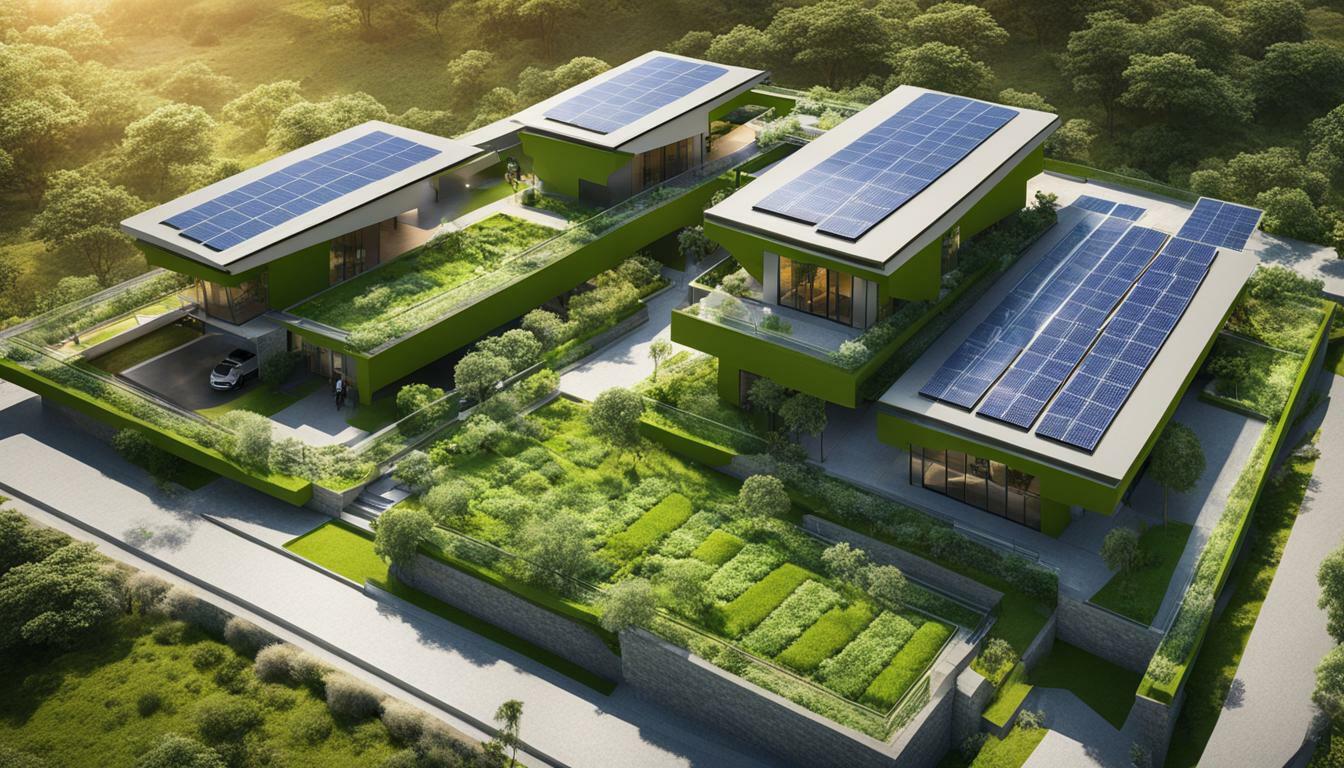


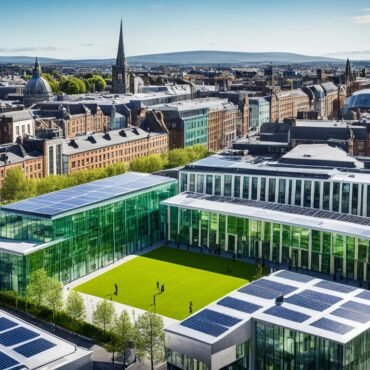
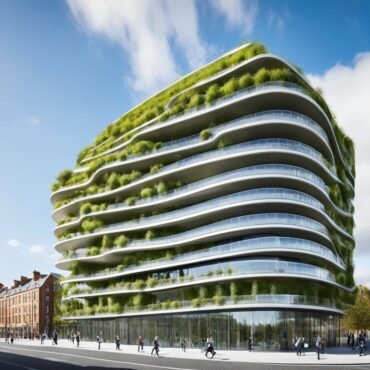




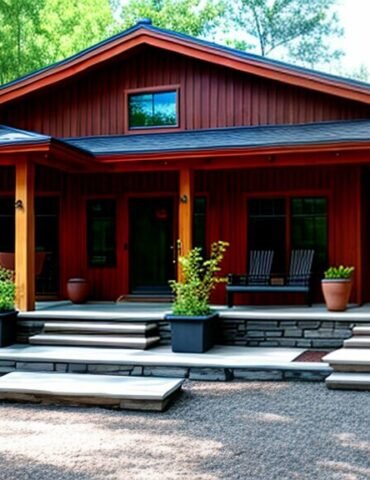




Post comments (0)